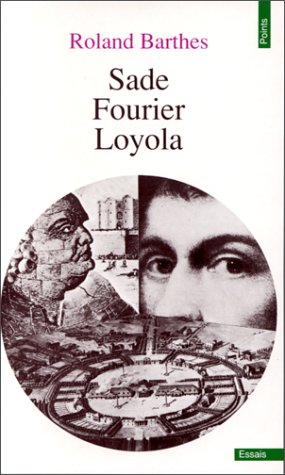Our extended theory and art discussion seems to have wound down, but Bert Stabler got in some retty great last words which I thought I’d highlight. First:
“The advocates of method oppose the nonmethod of chance to that of proceeding by reason. But what they want to prove is given in advance. They suppose that a little animal, bumping into things, explores a world that he isn’t yet able to see and will only be able to discern when they teach him to do so. But the human child is first of all a speaking being. The child who repeats the words he hears and the Flemish student lost in his Telemaque, are not proceeding hit or miss. All their effort, all their exploration, is strained toward this: someone has addressed words to them that they want to recognize and respond to: not as students or learned men, but as people; in the same way that you respond to someone speaking to you and not to someone examining you: under the sign of equality.” Jacques Ranciere, from The Ignorant Schoolmaster.
The left-theory world has its populists, like Ranciere, Bordieu, Zizek, and Gramsci, and its formalists, like Althusser, Deleuze, Derrida, and Greenberg. And it’s split up in numerous other ways too. And it’s like that in the art world as well, and in various areas of culture. But hierarchies of excellence are always conservative (even in a university), and totalizing universality is always radical (even when it’s just capitalism).
Barthes might indeed agree that image qua image needs to be recognized in some Platonic trinity of language qua language and math qua math, and freedom is the void that distinguishes and defines incommensurable multiplicities. I realize that that is a properly structuralist outlook.
But if the only true philosophy is epistemology, there immediately becomes no truth to epistemologically discern. Which I recognize as a conservative outlook– which, ironically for the feminists working with idealism, leaves them with nothing but nature and embodiment and the return to ancestral lore, the general revival of “witchcraft.”
And I have a great deal of sympathy for that, for blood and earth and haptic reflexive spasm within egoless harmonious chaos. And yet, there’s nothing about that that stands for an ethics that is itself ontological, rooted in the cosmos. I merely hope, without systematically promising, that image, the simulacrum of death, resurrected through the discursive language of art, can perhaps offer, as Caro says (echoing Hegel?), an ‘intervention that challenges the place to which poststructuralism has cast “primordial writing.”’
And here’s me in response.
In terms of your point about feminism…I think that gets at why Irigary, for example, who so radically resists the notion of biological determinism in some ways, in other ways seems so obsessed with embodiment, to the extent of seeing mathematics as gendered. Gender differences are metaphors, but there is no ontological truth beyond metaphors, so the women are not one because female lips are two, and the metaphor is the only truth there is. Bodies get erased by language and then immediately reconstituted in language. Logic is constantly swallowing bloody hunks of meat and then voiding them in a geyser of fluids, the pure grid eternally defiling itself, like Descartes pausing in his syllogisms to cut open a cow carcass, or Frankenstein birthing a shit baby. Derrida’s close reading is not an academic exercise; it’s a shamanic plunging of his orifice into sopping entrails; a violent and bloody ritual sacrifice to the hungering void.
And Bert again.
Barthes has a book about Sade, Fourier, and Loyola (called Sade Fourier Loyola), in which he describes them all as “logothetes,” inventors of languages; “It makes little difference how their style is judged, good, bad, or indifferent… all that is left in each of them is a scenographer; he who disperses himself across the framework he sets up and arranges ad infinitum. Thus if Sade, Fourier, and Loyola are founders of a language, and only that, it is precisely in order to say nothing, to observe a vacancy… Nothing is more depressing than to imagine the text as an intellectual object… The text is an object of pleasure… It is a matter of bringing into our everyday life the fragments of the unintelligible that emanate from a text we admire(.)”
This to me seems like a possibility in any discourse, to constantly defer Being through the proceas of Becoming, with the techniques of writing and erasing (sacrificing and consuming) functioning to constantly paper over the abyss on which we tread.
But the abyss itself persists only if we emerge ex nihilo, without reference to the gap that exiles us from nature. This lack that is the Real, perceived only in its effects, opposes the void, through trauma that makes necessity necessary and possibility possible. Language’s connection to pleasure is symbolic desire, which means anxiety and frustration for the phallus, but boundless freedom in lack.
Like I said, we may have exhausted this topic for now (though if people want to start off again, that would be cool too.) But in the meanwhile, thanks to Matthias, Caro, Franklin, Bert, and all those who joined in the discussion.

